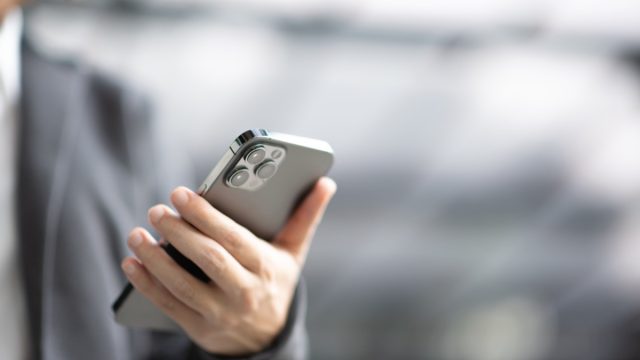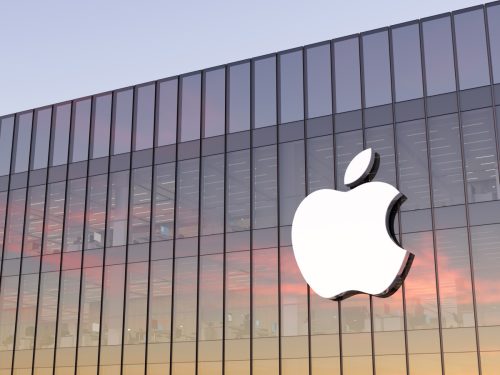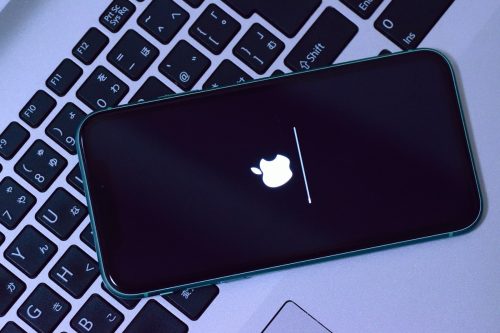If You Use Any Apple Devices, Do This “As Soon as Possible,” Officials Warn

If it seems like everyone and their mother has an iPhone, that’s probably because they do. Nearly half of all the smartphone users in the U.S. use one of Apple’s omnipresent devices—making for more than 113 million iPhone users in this country alone, according to Statista. Beyond iPhones, there are a slew of Apple devices to embrace, including Macbooks, iPads, Apple Watches, and AirPods. But if you’re an Apple enthusiast, you’ll want to pay attention to an urgent new alert from the tech giant. Read on to find out about the security threat affecting all Apple devices, and what government officials are warning you to do “as soon as possible.”
READ THIS NEXT: Security Experts Warn All Gmail and Facebook Users to Do This Now.
Apple often touts the importance of user security.

Apple has long said it is “committed to protecting the security and privacy” of its customers. From intelligent tacking prevention software to encrypted iMessages, the tech giant boasts a number of features to make sure users know that their information is being kept safe.
“Privacy is a fundamental human right. At Apple, it’s also one of our core values,” the company states on its website. “Your devices are important to so many parts of your life. What you share from those experiences, and who you share it with, should be up to you. We design Apple products to protect your privacy and give you control over your information.”
But as Apple also noted, “it’s not always easy.” And the tech giant doesn’t always see problems before they arise—which is why Apple users are now being warned about a major risk.
Apple is warning users about new software vulnerabilities.

Apple has released three new security updates this week to alert users about a major security risk. In all of these alerts, the tech giant noted that it had discovered two vulnerabilities in its operating system (OS) that “may have been actively exploited.” As TechCrunch explained, the vulnerabilities were found in WebKit, which is the “browser engine that powers Safari and other apps,” and in the kernel, which is “essentially the core of the operating system.
With the WebKit bug, Apple said hackers could execute “arbitrary code” on a vulnerable device if it were to access and process “maliciously crafted web content.” And the kernel bug could allow for an application “to execute arbitrary code with kernel privileges.”
RELATED: For more up-to-date information, sign up for our daily newsletter.
Hackers can take over a number of Apple devices with this issue.

In other words, these vulnerabilities could allow a hacker to get “full admin access” to impacted devices, Rachel Tobac, CEO of SocialProof Security, told the Associated Press. With this type of access, Tobac explained that these cybercriminals could impersonate you and run any software on your device.
According to Apple’s first security update on Aug. 17, the vulnerabilities affect all iPhone models since the iPhone 6. Also affected are all models of the iPad Pro, all iPads Air since the Air 2, all iPads since the 5th generation, all iPad Minis since the Mini4, and the 7th generation iPod Touch. In the subsequent two security updates, the company said the vulnerabilities also extend to Mac computers that are running the company’s Monterey OS, as well as Safari browsers running on its Big Sur and Catalina OS.
You should update your software “as soon as possible.”

Apple is urging users to update their software immediately in order to avoid the bugs, and government officials appear equally concerned. “Apply the necessary updates as soon as possible,” the U.S. Cybersecurity and Infrastructure Security Agency (CISA) said in an Aug. 18 news release regarding the Apple vulnerabilities.
“Upgrading to the latest version of [our] software provides the latest features, security updates, and bug fixes,” Apple says. According to the company, the most recent version of iOS and iPadOS is 15.6.1 and the latest version of macOS is 12.5.1. If you’re not already running these versions, you need to update your software. As the company reiterates, “Keeping your software up to date is one of the most important things you can do to maintain your Apple product’s security.”